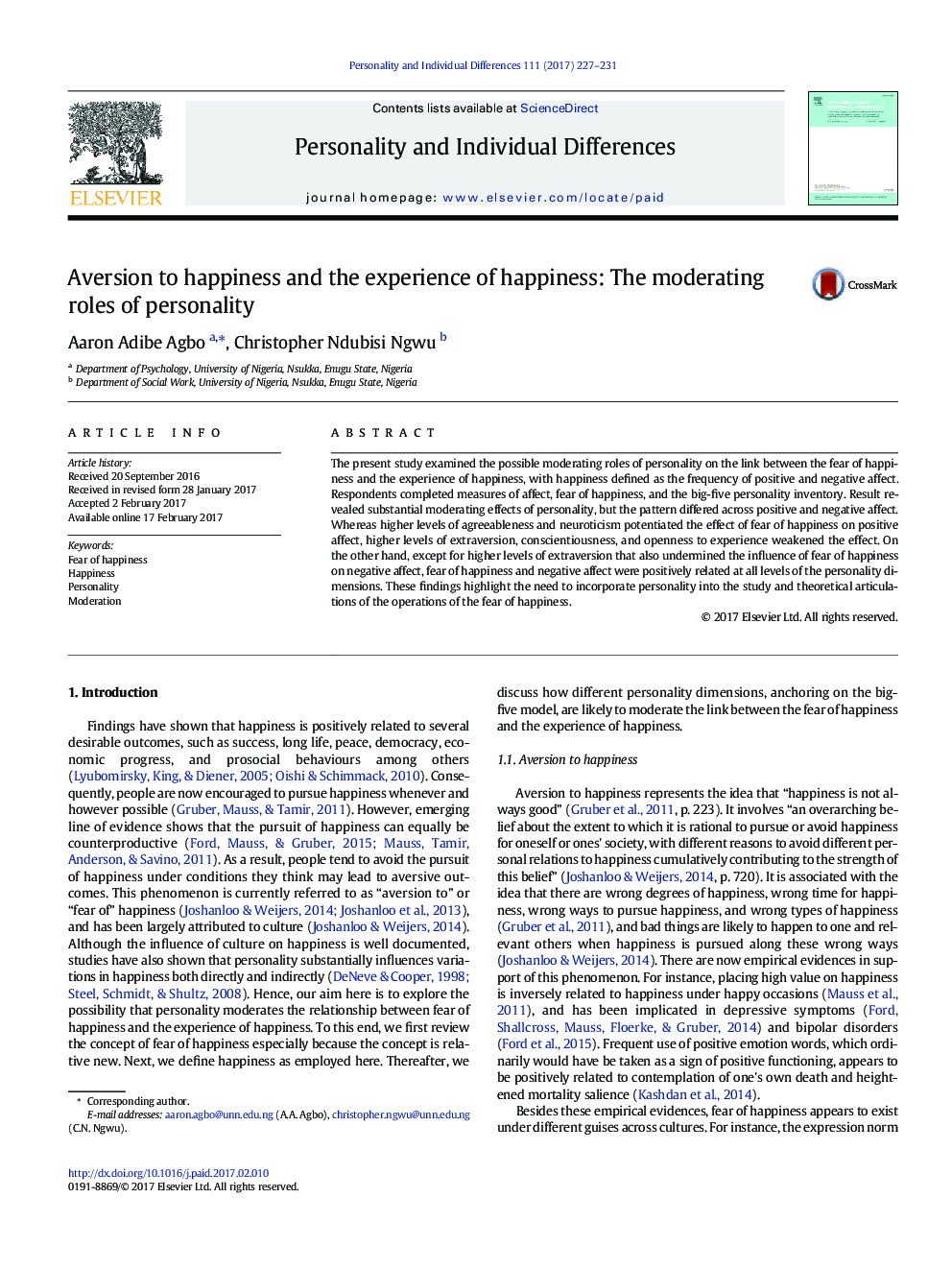| کد مقاله | کد نشریه | سال انتشار | مقاله انگلیسی | نسخه تمام متن |
|---|---|---|---|---|
| 5035944 | 1472007 | 2017 | 5 صفحه PDF | دانلود رایگان |
کلمات کلیدی
1.مقدمه
1. 1. ترس از شادی
2. 1. تعریف شادی
3. 1. ترس از شادی، شخصیت و تجربهی شادی
1. 3. 1. برونگرایی
2. 3. 1. سازگاری یا تطابقپذیری
3. 3. 1. روان رنجوری
4. 3. 1. وظیفهشناسی
5. 3. 1. استقبال از تجربه (آزاد اندیشی)
2. روش
1. 2. شرکت کنندگان
2. 2. ابزارها و روش
3. 2. تکنیک آماری
3. نتایج
1. 3. آمار توصیفی و همبستگی
جدول 1. آمار توصیفی و ضرایب همبستگی برای متغیرهای مطالعه
2. 3. شادی مثبت (تجربهی مکرر تاثیرات مثبت)
جدول 2. ضرایب رگرسیون مرتبط با هر بعد شخصیتی در مدل تعاملی ابعاد دیگر برای تاثیرپذیری مثبت
3. 3. شادی منفی (تجربهی مکرر تاثیرات منفی)
جدول 3. ضرایب رگرسیون مرتبط با هر بعد شخصیتی در مدل تعاملی ابعاد دیگر برای تاثیرپذیری منفی
4.بحث
- Agreeableness aids the negative influence of fear of happiness on positive affect.
- Conscientiousness weakens the influence of fear of happiness on positive affect
- Openness to experience weakens the influence of fear of happiness on positive affect
- Emotional stability weakens the influence of fear of happiness on positive affect
- Extraversion weakens the effect of fear of happiness on positive and negative affect
The present study examined the possible moderating roles of personality on the link between the fear of happiness and the experience of happiness, with happiness defined as the frequency of positive and negative affect. Respondents completed measures of affect, fear of happiness, and the big-five personality inventory. Result revealed substantial moderating effects of personality, but the pattern differed across positive and negative affect. Whereas higher levels of agreeableness and neuroticism potentiated the effect of fear of happiness on positive affect, higher levels of extraversion, conscientiousness, and openness to experience weakened the effect. On the other hand, except for higher levels of extraversion that also undermined the influence of fear of happiness on negative affect, fear of happiness and negative affect were positively related at all levels of the personality dimensions. These findings highlight the need to incorporate personality into the study and theoretical articulations of the operations of the fear of happiness.
Graphical presentation of the result.132
Journal: Personality and Individual Differences - Volume 111, 1 June 2017, Pages 227-231
